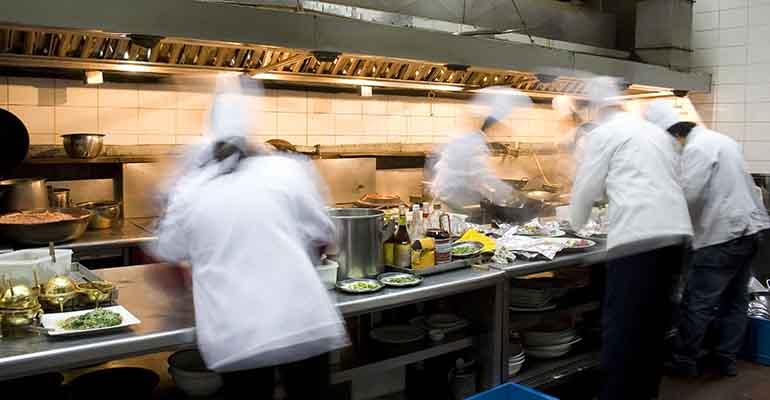Ghost kitchen. Virtual restaurant. Delivery-only brand.
As restaurants cater to the growing demand for carryout and delivery orders, operators are also looking at the best way to describe these modern off-premise services to each other and their guests.
It’s not always easy.
Although off-premise takes up a great deal of the restaurant industry conversation language and terminology is still being defined — and quite frankly argued about, even here at the offices of Nation’s Restaurant News and Restaurant Hospitality.
We admit, we’ve been learning along the way with rest of the industry when it comes to these terms. And looking back, we didn’t always use what we’d now consider the “correct” term.
We’ve taken a stab at defining a few of the key off-premise phrases, but we’d love your feedback, even if your feedback is that there is no “correct” term.
So, how would you define terms like “ghost kitchen” or “virtual restaurant?” Or is there a definition at all? Let me know: [email protected].
 The terms ‘dark kitchen’, ‘ghost kitchen,’ ‘virtual kitchen’ and ‘cloud kitchen’ are reasonably interchangeable.
The terms ‘dark kitchen’, ‘ghost kitchen,’ ‘virtual kitchen’ and ‘cloud kitchen’ are reasonably interchangeable.
Kim Severson, a food corespondent for the New York Times, brought another term to our attention—'shadow kitchen.' This term is also interchangeable with dark/ghost/virtual/cloud kitchen, too.
These kitchens are not housed in restaurants, but rather in shared commissary spaces, such as Kitchen United or Zuul. These can also be kitchen operations located outside the walls of a typical brick-and-mortar restaurant, without a typical dining room or public space, again with a focus on off-premise.
Shared commissary spaces focusing on delivery are also referred to as central kitchens, rent-a-kitchens, or as a ghost kitchen facility, dark kitchen facility or virtual kitchen facility. We also like the term cloud commissary, and we hope it catches on.
For example, delivery provider DoorDash recently launched DoorDash Kitchens, a shared ghost kitchen space in Northern California. In this case, DoorDash Kitchens’ rentable kitchen space is designed for restaurant brands looking to expand their off-premise sales in the Silicon Valley area without opening a physical restaurant in the pricey region. Chick-fil-A began using the space in November.
Another example of a ghost kitchen is The Local Culinary, which offers space only to in-house developed virtual brands.
*A Chipotle executive was recently quoted in Business Insider saying the brand’s second make lines were functionally the same as dark kitchens. While the brand’s second make lines might serve a similar function as a dark kitchen, we would argue that a second make line is not a dark kitchen.
*Cloud kitchens are not to be confused with the brand CloudKitchens, which is ex-Uber chief Travis Kalanick’s startup that offers built-out kitchens for rent. CloudKitchens also operates its own restaurant brands out of its kitchens.
 The terms virtual restaurant, delivery-only restaurant or cloud restaurant are also interchangeable, although ‘virtual restaurant’ is used most frequently. A virtual restaurant can be housed in an established traditional restaurant or housed in a dark/ghost/virtual/ cloud kitchen.
The terms virtual restaurant, delivery-only restaurant or cloud restaurant are also interchangeable, although ‘virtual restaurant’ is used most frequently. A virtual restaurant can be housed in an established traditional restaurant or housed in a dark/ghost/virtual/ cloud kitchen.
The term virtual restaurant has also been used to refer to a delivery-only brand, such as when an established restaurant spins off a new brand and menu for delivery or pick up only. So, another way to describe the brand explicitly is as a ‘virtual brand,’ ‘delivery-only brand’ or a ‘digital restaurant brand.’
NRN in October referred to Health Tribes, a brand dedicated to dietary restrictions from Just Salad, as a virtual restaurant. In this case, Health Tribes operates out of Just Salad locations and is available exclusively through Grubhub/Seamless. Going forward we may want to call Health Tribes and the like a virtual brand. See, we’re all learning this new lingo together.





